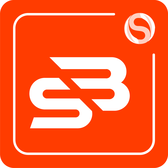Or go to our Shopify Theme Detector directly
How to Edit the Search Engine Listing for a Blog on Shopify
Last modified: November 24, 2023

The text that appears on the search engines results page for any blog post that you publish can be edited. This is important because the text can have a massive impact on your click through rate. The more people that are clicking through to your store, the more sales you’re likely to get.
This article demonstrates how you can edit the text that is included in the search engine listing for your Shopify store.
| # | Name | Image | |
|---|---|---|---|
| 1 |

|
SEO Booster ‑ SEO Marketing
|
|
| 2 |

|
Plug In SEO
|
|
| 3 |

|
SEO Manager
|
|
| 4 |

|
Benchmark Hero
|
|
| 5 |

|
SEO Doctor
|
|
| 6 |

|
Ultra SEO
|
|
| 7 |

|
SEO Products Optimizer
|
|
| 8 |

|
Smart SEO
|
|
| 9 |

|
SEO Image Optimizer
|
|
| 10 |

|
JSON-LD for SEO
|
|
| 11 |

|
SEO Expert Pro
|
|
| 12 |

|
SEO Images All-In-One SEO
|
|
| 13 |

|
SEO Ranger
|
|
| 14 |

|
All In One SEO Optimizer
|
|
| 15 |

|
ReloadSEO
|
|
| 16 |

|
SEO Assistant by Buymaxx
|
|
| 17 |

|
SEOMetriks Marketing Tools
|
|
| 18 |

|
Shopify SEO Suite by AVADA
|
|
|
Show More
|
|||
Step 1 – Login
The first step is to login to your Shopify store.
Step 2 – Blog Posts
From the Shopify dashboard, you can select the ‘Online Store’ and then ‘Blog Posts’ from the admin panel.
Step 3 – Manage Blogs
From the next screen, choose the option that reads, ‘Manage Blogs’. This will take you through to the blogs that are listed on your website. You will want to click on the blog name that you want to edit.
Step 4 – Opt for ‘Edit Website SEO’
Then you can search for the area on the screen that allows you to change the search engine listing preview. You can click on the option to ‘Edit Website SEO’.
Step 5 – Descriptive Title
There is a descriptive title from the Page title section. The title can have up to 70 characters in the meta tag title. However, it is better to have a title that is between 40 and 55 characters, as this is better suited for mobile and tablet screens. This is often displayed like a link on the search engine result.
Step 6 – Description
Now you can enter the description of the blog for your search engine listing. The number of characters is allowed is 320, however, it is better to have a description that is between 145 and 150 characters. This is long enough to contain your page’s keyword in a meaningful tone. You should also explain why users should click on the link.
Step 7 – Change URL
This is not a necessary step. In fact, in most situations, you don’t want to change the URL of the blog. However, if you do, this is the place where you need to make that change.
When you’ve completed this step, you can click on the ‘Save’ option to complete the work and apply the changes. The changes you’ve made will not be instantly available on Google or other search engines. It may take up to a month to appear.
Conclusion: How to Edit the Search Engine Listing for a Blog on Shopify
There are a few steps that allow you to edit the search engine listing for your Shopify blog. They aren’t too complicated and can be done easily by anyone, whether you have developer skills or not. If you need more help with search engines and ranking better on Google and others, remember that apps like Vitals or SEO Booster can help.
-
What impact does editing a blog’s SEO have on Shopify store traffic?
Proper SEO editing can significantly increase store traffic. It can lead to higher search rankings, improve visibility relevance in search results, and attract more customer engagement and potential sales.
-
Can I use Shopify’s SEO editing for non-blog pages?
Yes, Shopify’s SEO features are applicable to all store pages. This includes products, collections, and homepages, not just blogs, aiding in comprehensive site optimization, also enhancing overall site visibility.
-
How does adding tags to Shopify blog posts affect SEO?
Tags help organize content and can slightly boost SEO by categorizing content. They make it easier for users and search engines to find related topics more efficiently by improving site navigation and helping search engines understand content themes.

 PageFly Landing Page Builder
PageFly Landing Page Builder  Shopify
Shopify  SEMrush
SEMrush  Website Maintenance
Website Maintenance  UpPromote
UpPromote